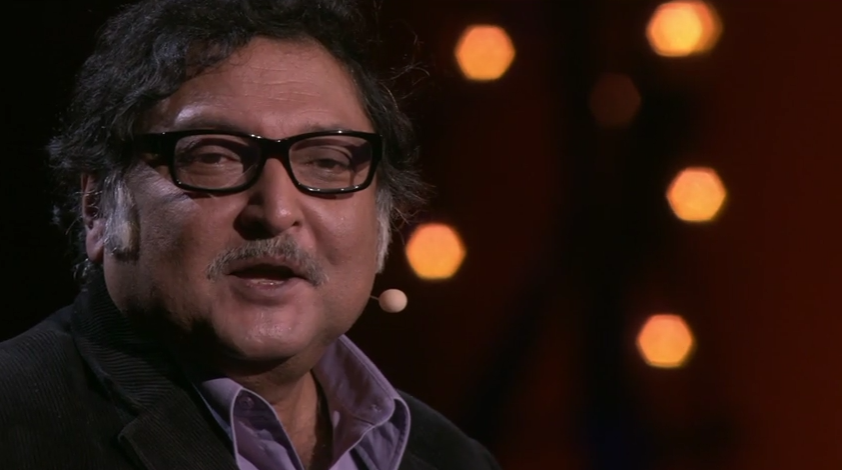The children came rushing, said, "What's all this?"
孩子們涌了過來問:“這些都是什么?”
So I said, "It's very topical, very important. But it's all in English."
我說:“這些都是熱門的,重要的東西。但都是英文寫的。”
So they said, "How can we understand such big English words and diagrams and chemistry?"
他們就說:“我們怎么可能懂這么多英語單詞還有圖表和化學?”
So by now, I had developed a new pedagogical method, so I applied that.
那時候,我已經學會一種新的教育方法,于是我用了。
I said, "I haven't the foggiest idea." "And anyway, I am going away."
我說:“我一點兒都不知道。”“反正,我要走了。”
So I left them for a couple of months. They'd got a zero. I gave them a test.
所以我離開他們幾個月。我以為他們會得零分。我給他們作了一次測驗。
I came back after two months and the children trooped in and said, "We've understood nothing."
兩個月之后我回去了,孩子們成群結隊地跑來說:“我們什么都沒搞明白。”

"Well, what did I expect?"
“好吧,我能期望什么呢?”
So I said, "Okay, but how long did it take you before you decided that you can't understand anything?"
我說:“但是你們花了多長時間得出的結論說你們什么都搞不懂呢?”
So they said, "We haven't given up. We look at it every single day."
他們說:“我們還沒放棄。我們每天都研究它。”
So I said, "What? You don't understand these screens and you keep staring at it for two months? What for?"
我說:“什么?你們看不懂這些屏幕但你們還是盯著看了兩個月?為什么?”
So a little girl who you see just now, she raised her hand, and she says to me in broken Tamil and English, she said,
有個小姑娘,就是你們剛才看到的,她舉起了手,用泰米爾語夾雜著蹩腳的英語說:
"Well, apart from the fact that improper replication of the DNA molecule causes disease, we haven't understood anything else."
“唔,除了不恰當的復制DNA分子會導致疾病,別的我們都不知道了。”











